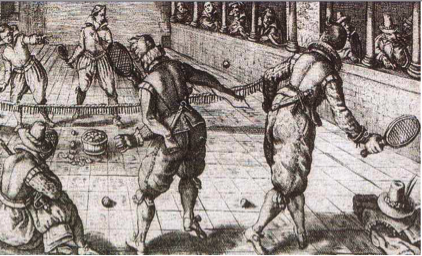Monday 9 October
Cabinet of Natural History
Department of History and Philosophy of Science, 1pm, Seminar Room 1
Nicholas Thomas (Museum of Archaeology & Anthropology, Cambridge)
‘On Tupaia Street: the travels of artefacts from Cook’s first voyage’
Political Thought
5pm – 6.45pm in the Old Combination Room, Trinity College
David Wooton (York)
‘Selfish Systems: Hobbes and Locke’
Tuesday 10 October
Early Science and Medicine
5pm, with tea from 4:45 in Seminar Room 1, HPS, Free School Lane
James Clifton (MFA, Houston)
‘Joachim Wtewael and the human body’
Slade Lectures in Fine Art 2017-18
5-6pm, Lecture Room 3, Mill Lane
Professor Stephen Bann (University of Bristol)
‘Scenes and Traces of the English Civil War’
Cambridge New Habsburg Studies Seminar
5-6.30pm, Senior Parlour, Gonville and Caius College
Jürgen Overhoff (University of Münster)
‘Montesquieu’s portrayal of Germany’s federal system and its reception in North America’
Wednesday 11 October
Early Modern Interdisciplinary Seminar
12.-1.15, Room GRO4 Faculty of English
Sara Norja (University of Turku)
“Alchemy in the vernacular: A digital edition of early English manuscript versions of The Mirror of Alchemy”
Things
12.30-2pm, Alison Richard’s Building, Room SG1
Paper Marbling – Hayrettin Kozanoglu (Independent Artist) and Mary Newbould (Cambridge)
Thursday 12 October
Early Modern World History Workshop
1-2pm, Senior Parlour, Gonville and Caius College
You are welcome to bring your lunch. Tea and coffee will be served.
Nicholas Mithen (EUI, Florence)
‘Political Theology and Interconfessional Networks in Early Eighteenth-Century Europe: Francesco Bellisomi between Naples, Halle, England, and Vienna’
Friday 13 October
3.30pm, The Needham Research Institute, 8 Sylvester Road, (situated at the corner of Sylvester and Herschel Roads, behind Robinson College)
Tea and biscuits are served. All welcome!
Robert Batchelor (Georgia Southern University)
“The Map as Stack: The Significance of Data Layers in the Making of the Selden Map of China (ca. 1619).”
***
Additional Notices
- Reformation 500 – Cambridge remembers the Reformation
The AHRC ‘Remembering the Reformation’ project based at the Universities of Cambridge and York, led by Professors Alex Walsham and Brian Cummings, is collaborating with Great St Mary’s Church and a theatrical re-enactment company called History Needs You to stage a public engagement event and associated family educational activities on Saturday 28 October. There will be activities during the day between 11 and 4pm. The play itself, which is intended for a general audience, will take place at 7pm and will dramatise key events in the European and English Reformations, culminating with the exhumation and burning of the bones of the Protestant reformers Martin Bucer and Peter Phagius during the reign of the Catholic Queen Mary in 1557.This message is to draw attention to this event, admission to which will be free. But it is to request volunteers to assist with the educational events during the day (which will be coordinated by the Heritage Officer at Great St Mary’s, Anna Lovewell), and/or to assist back stage and with the logistics of packing up etc. There are also a small number of walk-on/extra roles for men who can act as clerics. Costumes will be supplied.Anyone who is interested in volunteering should contact Alex Walsham on amw23@cam.ac.ukas soon as possible.
A press release about the event is below.
Reformation 500
Cambridge remembers the Reformation2017 will be commemorated across the UK and beyond as the 500th
anniversary of the start of the Reformation. 31 October 1517 is
the day on which Martin Luther is famously reputed to have nailed
his theses to the door in Wittenberg, lighting the blue
touch-paper of the Reformation. Cambridge has been described as
the cradle of the Reformation in England and many significant
events took place in and around Great St Mary’s church.Join us on Saturday 28 October, 11am to 4pm for a free family
activity day in Great St Mary’s, with hands-on craft activities,
Tudor music and drama, exploring the events of 500 years ago. Meet
King Henry VIII and a host of Tudor heroes, villains, heretics and
villagers and experience the sights and sounds of long ago.Reformation 500 will dramatise how Martin Luther’s theses
changed history in England with a spectacular play in GSM,
starting at 7pm on 28 October. Drama, music, kings, queens,
martyrdom, tragedy and redemption, the tumultuous events of the
Reformation in Cambridge are brought to life in the beautiful
setting of Great St. Mary’s. There will be a wine reception
during the interval and an opportunity to meet the cast in
character. There is no ticketing for this event, but we recommend
you arrive in good time to be sure of a seat.Reformation 500 is is a collaboration between Remembering the
Reformation, Great St. Mary’s church and HistoryNeedsYou.
Remembering the Reformation is an AHRC-funded research project
based at the Universities of Cambridge and York. Reformation 500
is written and directed by Matthew Ward, Director of
HistoryNeedsYou. He has worked on many well-known productions
including Poldark and Horrible Histories for the BBC.





